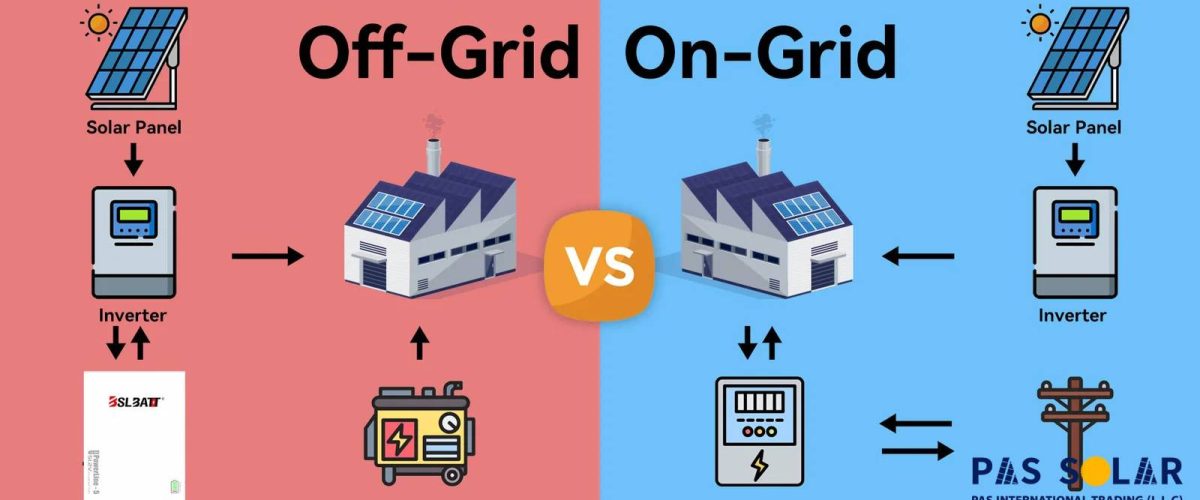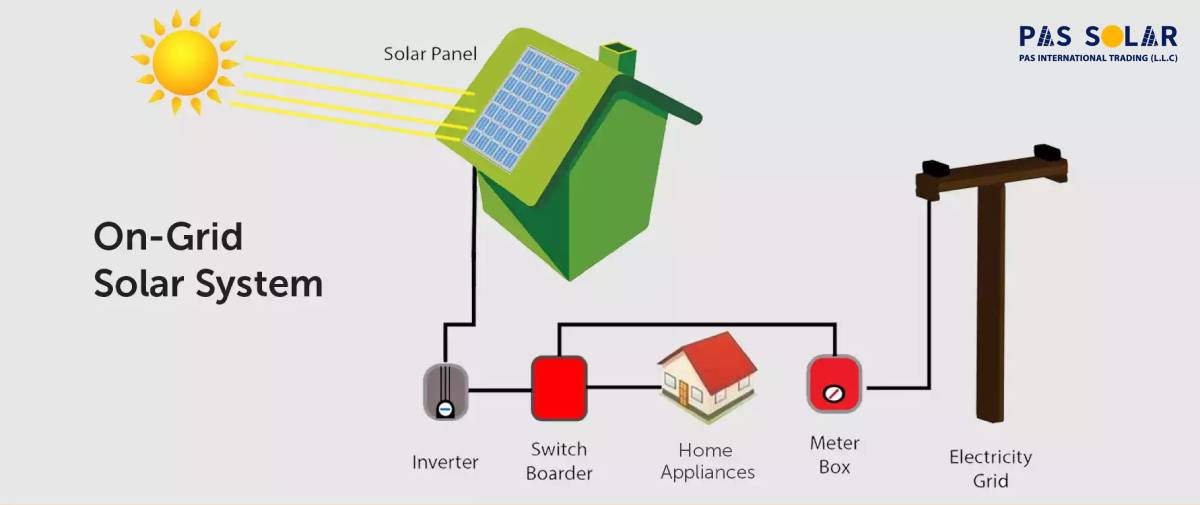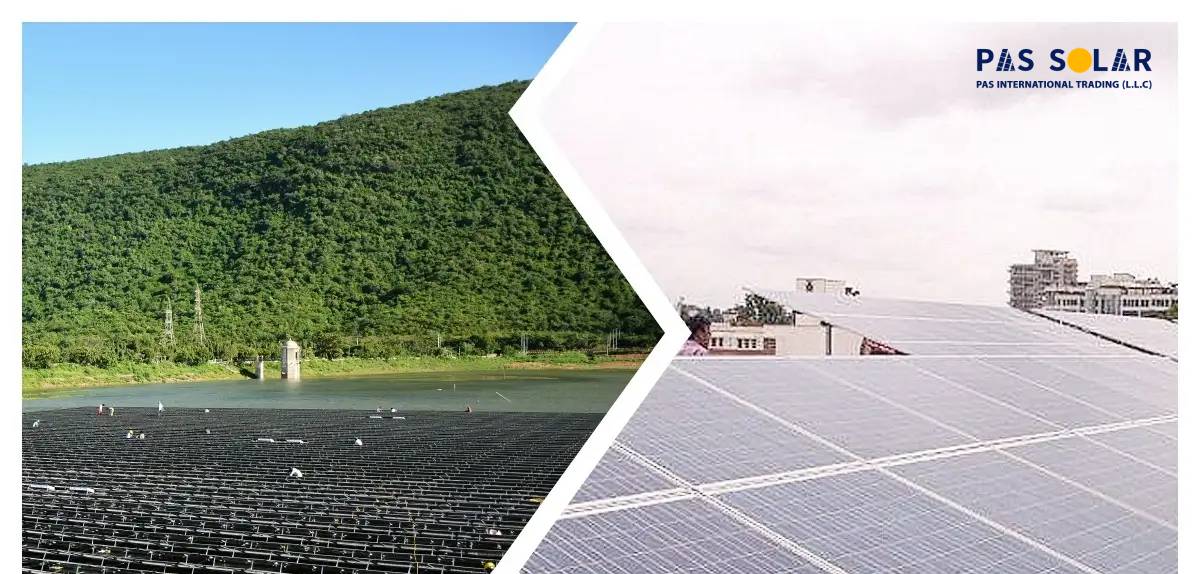

As the demand for solar energy continues to rise, choosing the right type of inverter becomes crucial. Among the most widely used options, the two most common types are off-grid and on-grid solar panel inverters, each designed for specific power needs and environments. Whether you’re powering a remote cabin or supplementing your city home’s electricity, understanding how these two systems differ helps you make a sustainable and smart decision.
If you’re exploring solar products in Dubai, understanding these differences helps you make the right investment.
| Feature | Off-Grid Inverter | On-Grid Inverter |
|---|---|---|
| Primary Power Source | Solar panels + Battery | Solar panels + Utility grid |
| Battery Required | Yes (mandatory) | No |
| Works During Power Outage | Yes – Provides backup power | No – Shuts down without grid signal |
| Best For | Remote areas, farms, cabins, boats, RVs | Urban homes, offices, shops |
| Initial Cost | Higher (due to batteries and extra components) | Lower (simpler installation) |
| Installation & Wiring | More complex and expensive | Easier and more cost-effective |
| Maintenance Cost | Higher (battery monitoring & replacements) | Low |
| Economic Efficiency | Depends on usage and location | High – Net metering saves on electricity bills |
| Electricity Bill Reduction | No (not connected to the grid) | Yes (can export excess power) |
| Grid Dependency | Completely independent | Dependent on utility grid |
| Energy Monitoring | Needs advanced controllers and monitoring | Easier with smart monitoring apps |
| Upgradeable to Hybrid | Possible with added cost | Easier using hybrid inverters |
| Emergency Resilience | Very high | Low – shuts down during blackouts |
Off-grid solar systems are designed for complete autonomy, ideal for remote living or anyone seeking full control over their power. These systems are particularly well-suited for remote areas where grid access is limited or nonexistent, such as rural properties, off-the-map cabins, RVs, boats, or any site where access to the grid is limited or unavailable. At the core of an off-grid solar setup lies the off-grid solar panel inverter, a device responsible for converting DC electricity from solar panels into usable AC power for your home or business.
Modern off-grid inverters bring smart energy to your system—equipped with smart charging, built-in protection, and optimized performance. While they generally cost more upfront due to the batteries and additional components, they offer unmatched independence. The average price for a reliable off-grid inverter depends on feature set, capacity, and brand.

On-grid systems are linked directly to the public power supply, allowing seamless energy exchange between your panels and the grid. At the center of this setup is the on-grid solar panel inverter, which not only converts DC power into AC electricity but also syncs seamlessly with the grid. One of the key advantages of this system is net metering, letting users send excess solar energy back to the grid and earn energy credits in return.
No, it is not impossible and you cannot use an on-grid inverter as an off-grid system, unless modified with hybrid technology. On-grid inverters rely on a constant grid signal to function and are not designed for standalone operation. Without it, they automatically shut down for safety to prevent electrical backflow.
While off-grid systems operate independently using batteries, on-grid systems like the Growatt on grid inverter are connected to the utility grid, offering higher efficiency and reduced electricity bills.
Choosing between off-grid and on-grid systems requires a clear understanding of how they differ in function, cost, and practicality. The table below highlights the most important differences to help you find out which system is the best one for your energy goals.
| Feature | Off-Grid Inverter | On-Grid Inverter |
| Power Source | Solar panels + batteries | Solar panels + utility grid |
| Battery Use | Required | Not required |
| Function During Outage | Continues supplying power | Shuts down Automatically |
| Cost | Higher (because of batteries’ need) | Lower overall |
| Maintenance | Complex (More components and requires regular checkups) | More Simple |
| Ideal Applications | Remote/rural environments | Urban |
| Energy Independence | Full | depends on the grid |
| Installation Complexity | Higher | Lower |

The core difference lies in how they connect to power sources. On-grid solar systems rely on the utility network for energy exchange and lack storage capabilities. Off-grid systems stand alone, powered by solar panels and backed by batteries to ensure reliable electricity anytime, anywhere. While on-grid setups are more suitable for homes in urban areas, off-grid solutions offer freedom in isolated regions like rural ones.
This question often confuses customers. Interestingly, both off-grid and on-grid systems use the same type of solar panels—the difference lies in how the energy is stored or shared. The distinction lies in the system’s design— namely, the inverter, battery, and how the energy is managed.
The decision between off-grid and on-grid solar panel inverters comes down to your energy priorities, your location, and long-term goals.
Looking for expert guidance and high-quality solar products? Passolar offers trusted, for both off-grid and on-grid solar solutions with top-tier inverters, tailored system design, and full after-sale support — all to ensure you get the best value for your investment.
If you’re looking for the best Growatt inverter, choose based on your system type and energy needs.
PAS SOLAR is a Distributer of solar equipment based in UAE. Composed of a team of professionals with the goal to provide customers with the latest Tier 1 Solar system in the region.
"*" indicates required fields